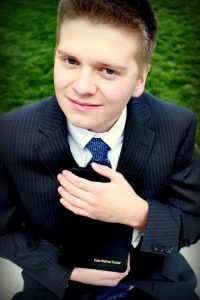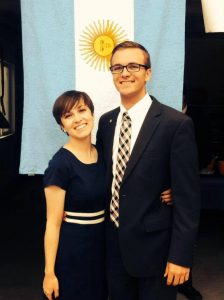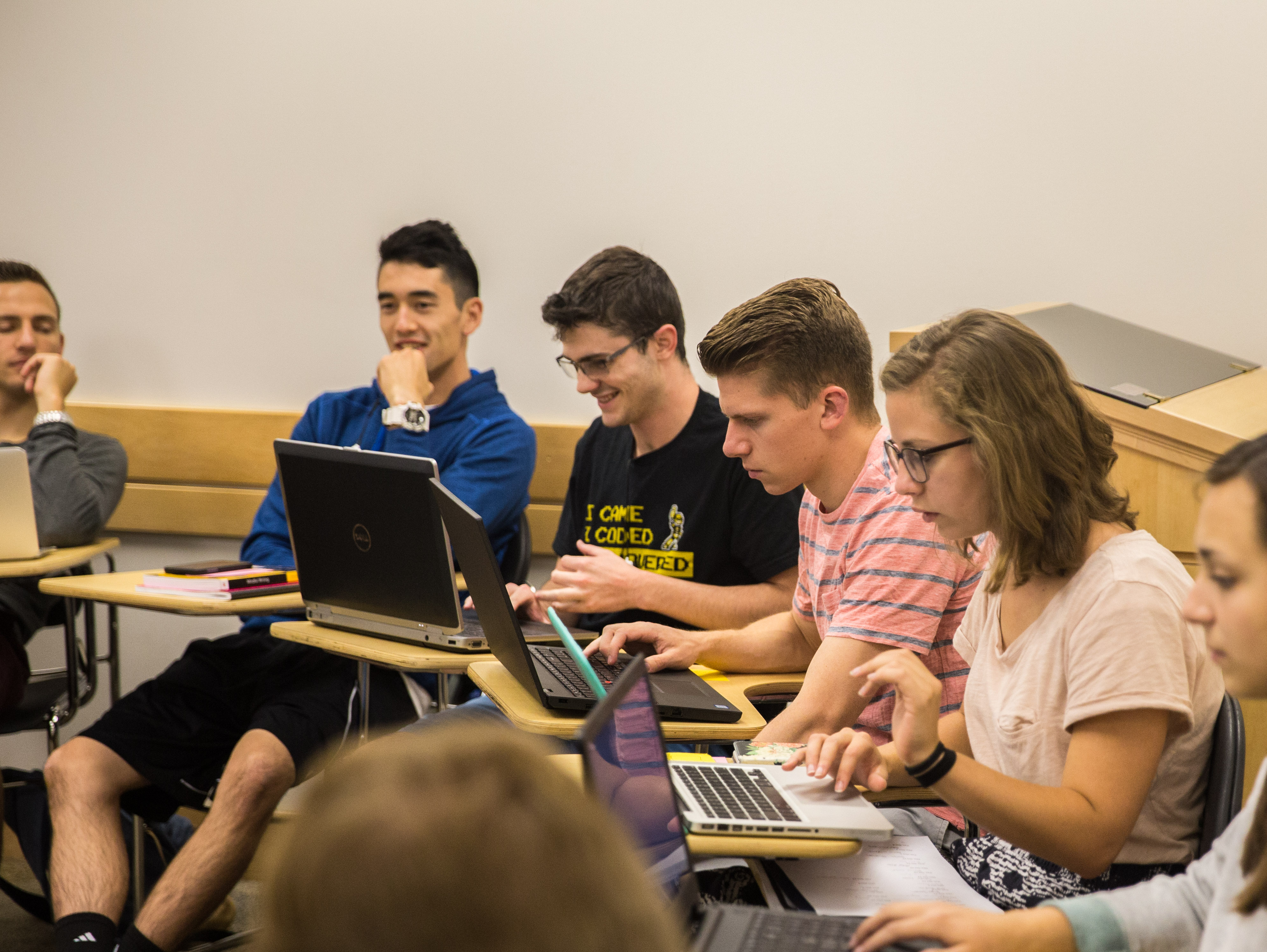
Nathan Turner returned from serving in the Chile Santiago East Mission on June 21 and walked into his first class at BYU on August 29, with no idea what to expect.
“The first week was definitely something different since I had not been to school for two years,” Turner, the 21-year-old freshman, said. “It was tough.”
Turner’s transition was like many other returned missionaries’: filled with busy weeks of organizing his class schedule and shifting gears from full-time church service to planning his education and future career goals.
Turner is just one of over 2,100 returned missionary freshmen BYU students, according to BYU University Communications. That’s nearly triple the number of returned missionary freshmen who were at BYU in Fall 2012, right before LDS Church President Thomas S. Monson announced men could serve missions at age 18 and women could serve at age 19.
Since then, more 18-year-old young men in the church are leaving on missions directly following high school graduation before attending college. This fall, over 41 percent of BYU’s freshmen are returned missionaries. Although the college experience itself may be new for them, many of these freshmen are finding the extra years of mission experience are creating positive effects on their personal study habits, career goals and planning abilities.
Caden Lindquist left home just a few months after he graduated high school in 2013 to serve in the Buenos Aires Argentina Mission when he was 18 years old. Lindquist returned home from his mission in October 2015 at age 20 and began taking part-time classes at BYU in January.
Lindquist, now 21, said he always had plans of attending college, but said going on a mission helped him to see even greater value in education and make it more of a priority.

“Going on a mission has helped one thousand times more than I thought it would,” Lindquist, who studies pre-management, said. “It’s helped with everything, definitely school. It’s helped me to understand how to do work, how to work hard, to believe in myself.”
Lindquist said he has greater focus, goal-setting and prioritization skills since returning home from his mission, but he struggled using English again after speaking Spanish for two years.
“It’s been difficult getting back into writing papers,” Lindquist said. “But it’s really helped me in other classes to know how to read and how to do homework and write other papers.”
BYU graduate instructor Marissa Compton has taught Writing 150 to over 80 primarily freshmen students in the last year. Compton meets one-on-one with each of her students three times during the semester and reads their class journals, which helps her get to know her students on an individual level.
“Frequently, the returned missionaries have a better idea of how to study — both in terms of how to read and how to set goals,” Compton said.
Compton echoed Lindquist’s challenge of re-learning English, saying some of her students who had been serving foreign language missions seem to struggle adjusting to reading and writing in English.
“But on whole, they are more focused and they understand how to participate in the system a little better,” Compton said. “They’ve been trained on how to read a lot of the time. They can take the ways they’ve read the scriptures and apply it to other things, which is actually really cool for them.”
Compton also said since returned missionary freshmen do not all live in freshmen housing, their lifestyle and social life are a bit different than the “typical” 18-year-old freshman student’s.
“They’re less likely to be hanging out at Denny’s at three o’clock in the morning,” Compton said.

Licensed psychologist and University Advisement Center director Karen Evans, Ph.D., agrees many returned missionaries she has met with seem to have better study habits, goal-setting skills and focus than many “true freshmen.”
“They’ve learned how to study a little bit more and they’re more academically focused than the 18-year-old freshman has been,” Evans said.
Evans said these students often tend to take a goal-setting and planning approach to school when they return home, because they have spent two years creating weekly goals and learning personal accountability through reporting, .
But even with such a strong desire to persevere and succeed, Evans said many of these missionaries still are lost on the direction they want their hard work to lead them.
“A lot of times they come back even more undecided than when they left because their horizons have broadened,” Evans said. “They’ve learned about other kinds of jobs that are out there.”
Evans said when she asks many returned missionaries what kind of career they want they are often unsure. She said they only know they want to continue serving others like they did on their missions, but aren’t quite sure how.
“Some missionaries come back and they’re so full of the spirit; all they can say is, ‘I just want to help people.’ But they don’t know what that means,” Evans said. “It’s this wonderful goal but it’s not concrete.”
Evans said her job is to help students gain a skill in college that will allow them to help people in a practical way, such as providing healthcare, clean water or good stable jobs for others.
BYU academic and career advisor Kerry Hammock has spent hours working with both 18-year-old freshmen and returned missionary freshmen and doesn’t think their decision to serve necessarily makes a difference on how prepared they are to start college and choose a career.
“I think I’d probably see a little bit more focus among those who have been (on missions), or at least they know they should be focused. I don’t know if the focus is real, or if it’s an expectation of focus,” Hammock said. “I don’t know that they’re any more decided, but they know they need to be decided. They have a little bit more commitment to it perhaps.”
Hammock said there is one main trend he has seen among returned missionary freshmen: persistence.
“If they were strong missionaries, they knew that there were times that they didn’t want to do certain things, but they did them anyway,” Hammock said. “Certainly they do learn to sit down and pay attention and study in the mornings, but it may be some of the attitudes surrounding that study that’s impacting them greater.”
Hammock said that even with greater focus, goal-setting abilities and persistence, college is still a different experience for freshmen students regardless of if they’ve served a mission or not.




